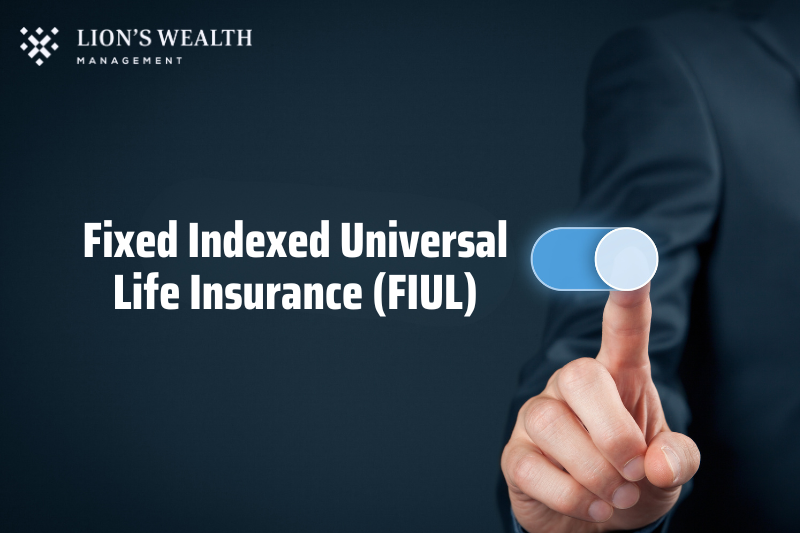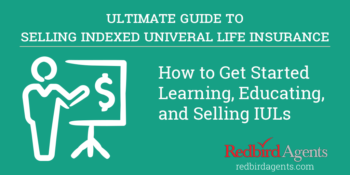All Categories
Featured
Table of Contents
Do they contrast the IUL to something like the Lead Total Supply Market Fund Admiral Shares with no lots, a cost proportion (ER) of 5 basis factors, a turnover proportion of 4.3%, and a remarkable tax-efficient document of circulations? No, they contrast it to some terrible proactively managed fund with an 8% lots, a 2% ER, an 80% turn over ratio, and a terrible document of short-term resources gain distributions.
Mutual funds frequently make annual taxed distributions to fund proprietors, even when the value of their fund has actually decreased in worth. Mutual funds not only require earnings coverage (and the resulting annual taxes) when the shared fund is going up in value, but can likewise impose income tax obligations in a year when the fund has actually gone down in value.
You can tax-manage the fund, harvesting losses and gains in order to reduce taxed circulations to the investors, yet that isn't in some way going to change the reported return of the fund. The ownership of common funds may require the mutual fund proprietor to pay estimated tax obligations (top iul companies).

IULs are easy to position to make sure that, at the proprietor's fatality, the recipient is exempt to either revenue or estate taxes. The exact same tax decrease techniques do not work almost also with mutual funds. There are numerous, typically expensive, tax catches associated with the timed trading of mutual fund shares, catches that do not apply to indexed life Insurance.
Chances aren't very high that you're going to be subject to the AMT due to your mutual fund distributions if you aren't without them. The rest of this one is half-truths at finest. While it is true that there is no revenue tax due to your successors when they inherit the earnings of your IUL policy, it is also real that there is no income tax due to your successors when they inherit a common fund in a taxable account from you.
Indexed Universal Life Insurance Companies
There are better means to avoid estate tax obligation problems than buying financial investments with reduced returns. Common funds might trigger revenue tax of Social Protection advantages.

The growth within the IUL is tax-deferred and might be taken as free of tax income via car loans. The plan proprietor (vs. the mutual fund manager) is in control of his/her reportable revenue, therefore enabling them to reduce and even eliminate the taxes of their Social Safety benefits. This is terrific.
Here's another very little issue. It's real if you acquire a common fund for state $10 per share prior to the distribution date, and it distributes a $0.50 circulation, you are after that going to owe taxes (possibly 7-10 cents per share) regardless of the reality that you haven't yet had any type of gains.
But in the end, it's actually regarding the after-tax return, not exactly how much you pay in taxes. You are going to pay even more in taxes by utilizing a taxable account than if you acquire life insurance policy. However you're likewise probably going to have more money after paying those tax obligations. The record-keeping needs for having mutual funds are substantially much more complicated.
With an IUL, one's records are maintained by the insurance company, copies of yearly statements are mailed to the owner, and distributions (if any type of) are amounted to and reported at year end. This set is additionally kind of silly. Obviously you need to maintain your tax obligation records in case of an audit.
Iul Companies
Hardly a factor to purchase life insurance policy. Mutual funds are commonly component of a decedent's probated estate.
On top of that, they go through the hold-ups and expenditures of probate. The proceeds of the IUL plan, on the other hand, is always a non-probate circulation that passes beyond probate directly to one's named beneficiaries, and is therefore exempt to one's posthumous financial institutions, unwanted public disclosure, or comparable hold-ups and costs.
We covered this set under # 7, yet simply to recap, if you have a taxed shared fund account, you should place it in a revocable trust (and even simpler, utilize the Transfer on Fatality designation) in order to stay clear of probate. Medicaid disqualification and life time earnings. An IUL can supply their proprietors with a stream of income for their entire life time, no matter of how long they live.

This is helpful when arranging one's affairs, and transforming possessions to income before an assisted living home confinement. Mutual funds can not be transformed in a comparable way, and are usually considered countable Medicaid assets. This is one more dumb one promoting that poor individuals (you know, the ones who need Medicaid, a federal government program for the inadequate, to pay for their assisted living facility) must make use of IUL as opposed to shared funds.
No Lapse Universal Life Insurance
And life insurance coverage looks awful when contrasted rather versus a retired life account. Second, individuals that have money to acquire IUL above and past their pension are mosting likely to need to be dreadful at handling cash in order to ever before receive Medicaid to pay for their retirement home costs.
Persistent and incurable illness biker. All plans will certainly permit an owner's very easy access to cash money from their policy, typically waiving any kind of surrender penalties when such individuals endure a serious disease, need at-home care, or become restricted to an assisted living home. Shared funds do not give a comparable waiver when contingent deferred sales charges still use to a common fund account whose owner requires to offer some shares to money the expenses of such a stay.
Universal Life Option A
You obtain to pay even more for that advantage (biker) with an insurance coverage policy. Indexed global life insurance coverage gives death benefits to the recipients of the IUL owners, and neither the proprietor nor the beneficiary can ever before lose money due to a down market.
Currently, ask yourself, do you in fact need or desire a death benefit? I certainly do not require one after I reach financial self-reliance. Do I want one? I expect if it were low-cost sufficient. Certainly, it isn't affordable. Typically, a purchaser of life insurance policy spends for real price of the life insurance policy benefit, plus the prices of the plan, plus the profits of the insurance coverage company.
Who Should Buy Universal Life Insurance
I'm not totally certain why Mr. Morais included the whole "you can not shed cash" once more below as it was covered rather well in # 1. He simply wished to repeat the very best marketing factor for these points I mean. Once more, you don't lose small bucks, but you can shed real dollars, along with face major possibility expense due to reduced returns.

An indexed universal life insurance policy plan proprietor might trade their plan for a totally different plan without triggering income taxes. A shared fund proprietor can not move funds from one shared fund business to an additional without selling his shares at the previous (therefore activating a taxed event), and buying brand-new shares at the last, usually based on sales fees at both.
While it is true that you can exchange one insurance plan for one more, the factor that people do this is that the first one is such an awful policy that even after buying a brand-new one and experiencing the very early, negative return years, you'll still appear ahead. If they were marketed the ideal plan the first time, they shouldn't have any wish to ever before trade it and go via the very early, adverse return years once more.
Table of Contents
Latest Posts
Accumulation At Interest Option
Iul Dortmund
More
Latest Posts
Accumulation At Interest Option
Iul Dortmund